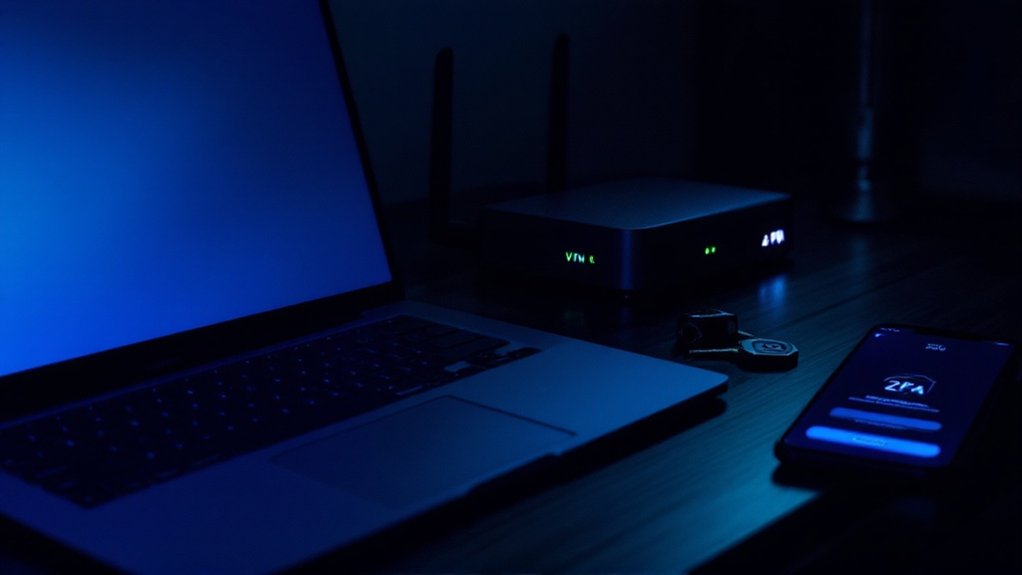The AT&T Access Program currently offers the most affordable internet service at $10 monthly for speeds up to 100 Mbps, followed by Spectrum Internet Assist at $14.99 for 50 Mbps. Other low-cost options include Xfinity Connect and Mediacom at $19.99 monthly, whereas T-Mobile provides home internet at $30 monthly with speeds between 72-245 Mbps. Availability varies by location, and eligibility requirements apply for these budget-friendly plans, with additional features and benefits varying by provider.

Looking for affordable internet service has become increasingly critical as connectivity needs continue to grow for American households. Among the most budget-friendly options currently available, the AT&T Access Program stands out with its $10 monthly rate for speeds up to 100 Mbps, offering considerable value for qualifying low-income households during participation in the Affordable Connectivity Program.
The search for budget internet grows vital as Americans increasingly rely on connectivity for daily life and essential services.
Spectrum Internet Assist follows closely behind at $14.99 per month, delivering speeds up to 50 Mbps with no data caps or contracts, making it another viable choice for low-income families. The service includes a free internet modem, with optional WiFi available for an additional $5 monthly fee. Considering the average household payment of $92.22 per month for internet service, these affordable plans represent significant savings for budget-conscious consumers.
Both Xfinity Connect Plan and Mediacom Internet 100 are positioned at $19.99 per month, though they differ substantially in their offerings. Xfinity provides higher speeds at 150 Mbps and includes a free modem, while Mediacom offers 100 Mbps but requires a $10 monthly modem rental fee and implements a 200 GB data cap. Strategic keyword clustering can help consumers better understand and compare these internet service options based on their specific needs.
T-Mobile Home Internet presents an attractive option at $30 monthly for eligible mobile plan customers, delivering average download speeds between 72 and 245 Mbps with no additional equipment costs. In the same way, Verizon Fios 300 offers a competitive rate of $25 per month for mobile plan customers, providing symmetrical 300 Mbps speeds with included router and a two-year price guarantee.
For those seeking higher speeds at reasonable rates, Frontier Fiber 500 delivers 500 Mbps symmetrical speeds for $29.99 monthly, including a free router and a two-year price guarantee.
The geographic availability of these services varies greatly, with Xfinity reaching 39 states, Mediacom serving 22 states, and T-Mobile’s availability extending to over 50 million households nationwide.
When evaluating these options, consumers should consider not only the base monthly rate but as well equipment fees, data allowances, speed capabilities, and service availability in their area to determine the most cost-effective solution for their specific needs.
Frequently Asked Questions
Can I Get Internet Service Without Signing a Long-Term Contract?
Multiple internet service providers now offer no-contract options, giving consumers flexibility without long-term commitments.
Major companies like T-Mobile, Spectrum, Xfinity, Verizon Fios, and Google Fiber provide month-to-month plans starting from $19.99 to $70 per month.
Whereas these plans may have higher monthly rates and fewer bundling options than contract services, they offer advantages including freedom to switch providers, adaptable plan adjustments, and no early termination fees.
How Reliable Are Budget Internet Providers Compared to Major Companies?
Budget internet providers typically demonstrate lower reliability compared to major carriers, with more frequent service disruptions during peak usage hours.
Industry data shows budget services experience 15-20% more outages annually than premium providers, who invest heavily in infrastructure maintenance.
Nevertheless, some affordable options like T-Mobile 5G Home Internet achieve strong reliability metrics, scoring 649/1000 in J.D. Power ratings.
Whereas fixed wireless providers consistently receive above-average satisfaction scores for dependable service.
Do Low-Cost Internet Plans Include Wi-Fi Router Rental?
Many low-cost internet plans include Wi-Fi router rental in their base pricing, though policies vary greatly by provider.
Xfinity Connect ($19.99/month) and T-Mobile 5G ($35/month) offer included equipment, whereas Spectrum charges an additional $5 monthly fee.
Several providers allow customers to use their own compatible routers, potentially saving over $120 annually in rental fees.
Basic router models typically come standard with budget plans, whereas advanced mesh systems incur extra charges.
Are There Hidden Fees With Cheaper Internet Service Providers?
Budget internet providers typically include various hidden fees in spite of advertising low base rates. Common charges include installation costs ranging from $50-100, equipment rental fees of $10-15 monthly, and data overage penalties of $10 per 50GB exceeded.
Moreover, promotional rates often increase by 20-40% after the first year, whereas activation fees of $10-50 and regulatory charges further inflate the advertised price.
Service changes and late payments may incur additional costs.
Can I Bundle Low-Cost Internet With Other Services to Save Money?
Bundling low-cost internet with additional services typically offers savings of 10-30% compared to standalone options.
Major providers, including Xfinity and Spectrum, offer internet-TV combinations starting at $30-50 monthly for the first year.
Triple-play packages, which include phone service, can reduce costs by $20-40 monthly.
Mobile carriers like T-Mobile have introduced home internet bundles starting at $30 monthly when combined with cellular plans.









